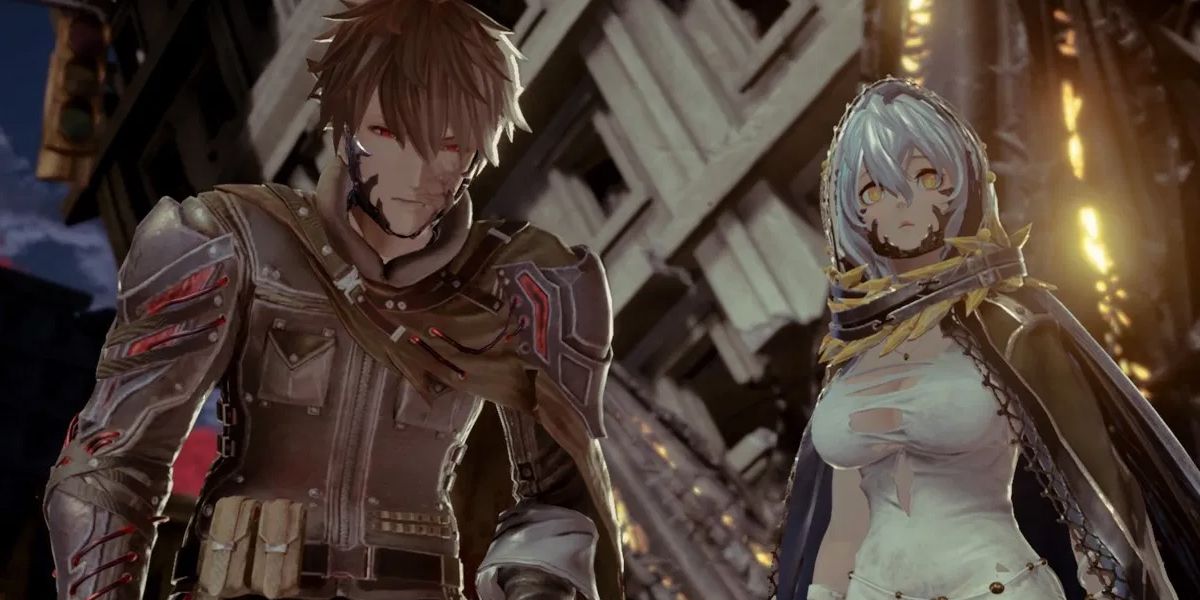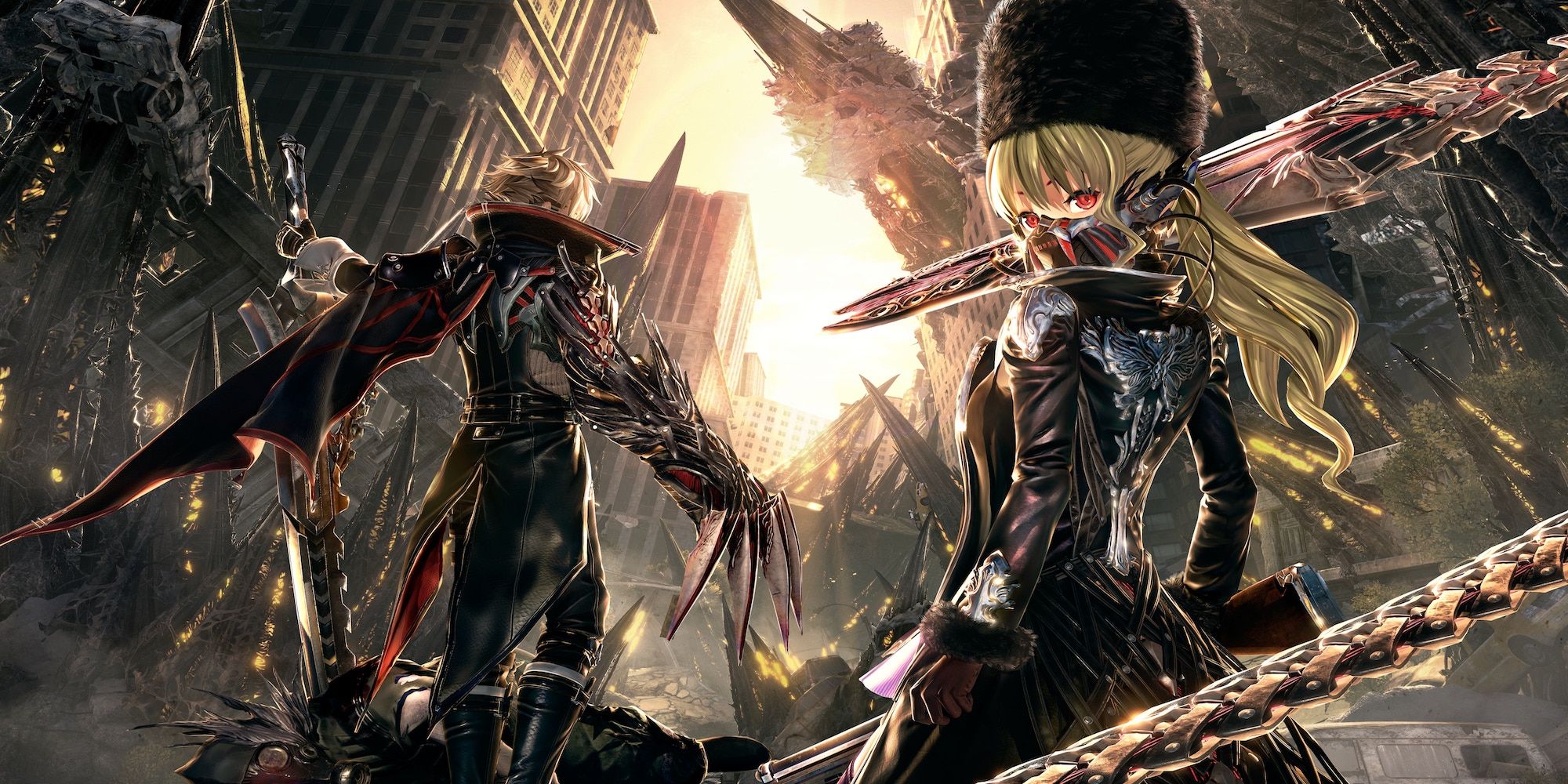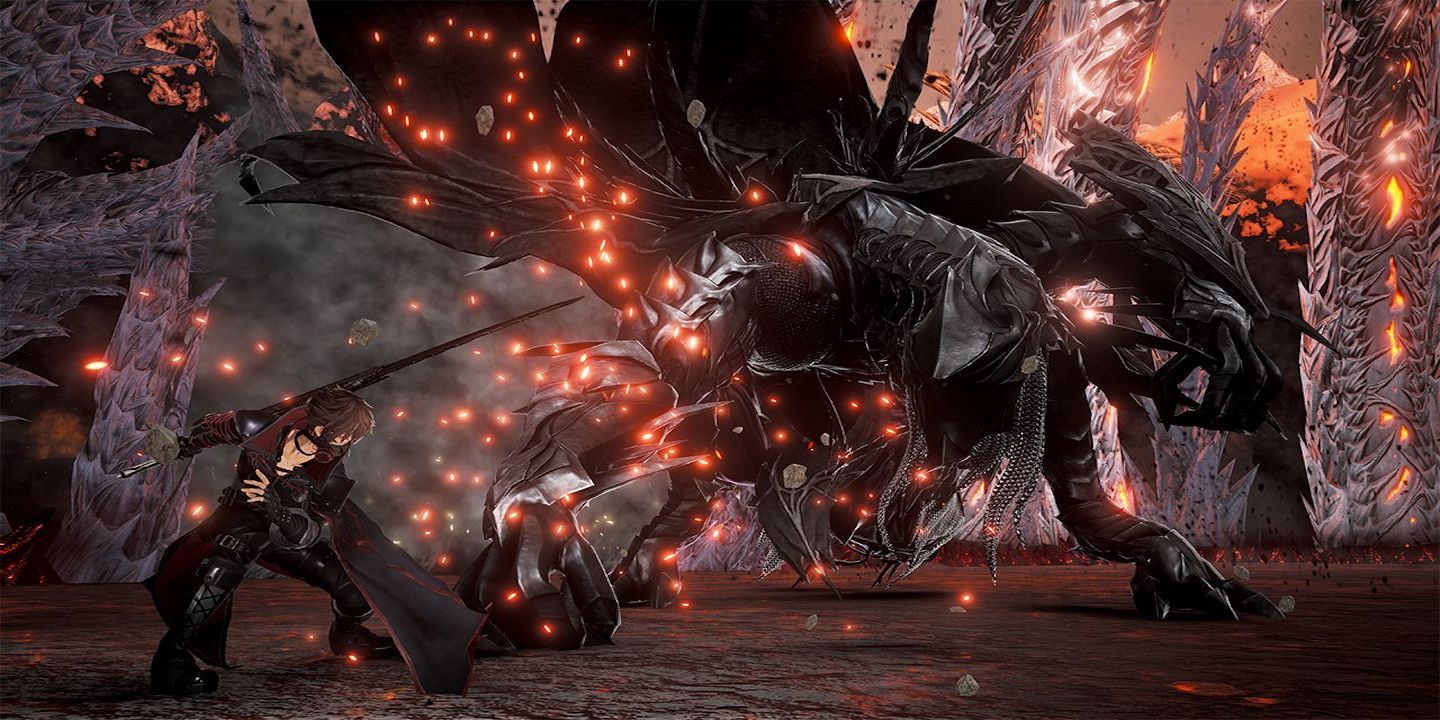After nearly three years since its release, Code Vein continues to be a defining yet underrated title in the Soulslike gaming subgenre. Upon its release, the game received a mixed reception from fans that lead to generic labeling of the game as an "anime Dark Souls" and it being overlooked during discussions of Soulslikes. With the recent staggering success of Elden Ring revitalizing the genre and sparking renewed conversations about the genre's best games, this underdog that put an exciting spin on a familiar gameplay style is, once again, being left out.
In the years since Demon's Souls ushered in a new era of dark, riveting, and punishing action-RPGs, FromSoftware and other developers have created more games like it, so much that the terms "Soulslike" and "Soulsborne" were created to classify them. From this new subgenre have come classics like Bloodborne and Sekiro: Shadows Die Twice, reinvigorating fan interest in new fantasy settings while keeping the same challenging gameplay style that has become a staple of Soulslike games.
A unique twist to the established aesthetic, Bandai Namco's Code Vein combines an enhanced version of gameplay with an anime art style that was previously completely unheard of for the genre. beyond that, though, there is a lot more to be said about the game that completely sets it apart from every other Soulslike, making it an underrated entrie in the genre.
What distinguishes Code Vein from its predecessors starts with the game's overall appearance. The anime art style is a far cry from the medieval designs of Dark Souls or even the steampunk motif of Bloodborne. Code Vein embraces its influences down to the bones of the story. Inspired by the God Eater series (which the developers worked on first) and sharing some similarities with the Devil May Cry series, there's an incredible harmony between two different styles coming together to form an all-new kind of story.
While most Soulslikes are set in a historical-fiction era, Code Vein jumps forward in time with a post-apocalyptic dystopian setting where bloodthirsty undead, called Revenants, protect what remains of the world from vicious monsters created by a lethal fog. The story hits all the dark tragedy marks of the genre, but with a unique twist in a broken, futuristic setting that is an exhilarating change from what has been done before.
Code Vein amplifies what fans love about Dark Soul's gameplay, serving as a beginner-friendly introduction to the genre that still appeals to seasoned players looking for a new challenge. Where some players may have been unhappy with the limitations the Dark Souls series presented, Code Vein implements details that amp up gameplay.
The ability to switch classes whenever a player desires (even during battle) and a rewarding combat system that doesn't solely focus on dodging, but also uses parrying all make for a more fighting flexible style that can appeal to players of any level. Game mechanics also allow the use of energy drain and revival to a player's advantage. If used strategically, this can lead to tremendous energy regain to help players make it through tricky boss fights without too much frustration -- a huge change from the Soulslike genre's usual meticulous combat.
Where Code Vein truly shines is in its exceptional use of co-op, which makes it easy for players to setup and connect in order to tackle tasks with more than one person and providing NPC companion support that is actually helpful. For the first time in any Souls-inspired game, players could fully customize their character with a versatile system that allows them to design their appearance to even the most minute detail. This helps make the game feel more personal, making the player just as important to Code Vein's world as any NPC.
Code Vein may not be the strongest Soulslike. It has flaws, from throwing an overwhelming amount of information at players to a lack of depth in area exploration and repetitive boss fights. Still, what the game lacks, it makes up for with superb lore and design. While it may not be able to match titans like Bloodborne or Elden Ring, Code Vein has proven itself to be so much more than an "anime Dark Souls." Years after its release, it is still able to withstand the test of time as the most underrated game from the Soulslike roster.



